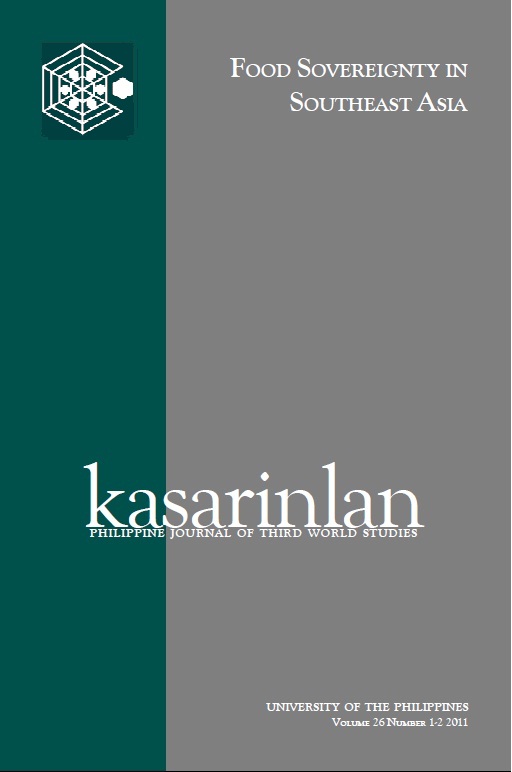Does Nature Determine the Gendered Spaces in Indigenous Society? A Look at the Ivatan Farming System and Food Sovereignty
Abstract
This study analyzes the paradoxical situation of Ivatan women whose spaces and places are used, valued, and struggled over not only to protect their independent sources of income and livelihood but also to preserve the diversity in local flora and fauna. The paper suggests that it is important to understand their role in household production and reproduction activities as part of their obligation to feed the family. While development policies and programs are geared toward greater participation of indigenous people, the same program fails to contextualize and locate indigenous women whose productive-reproductive roles and worldviews revolve around domestic needs and requirements of the family.
How to Cite
DAYO, Maria Helen F..
Does Nature Determine the Gendered Spaces in Indigenous Society? A Look at the Ivatan Farming System and Food Sovereignty.
Kasarinlan: Philippine Journal of Third World Studies, [S.l.], v. 26, n. 1-2, p. 274-284, dec. 2012.
ISSN 2012-080X.
Available at: <https://journals.upd.edu.ph/index.php/kasarinlan/article/view/3499>. Date accessed: 21 sep. 2025.
Section
Research Notes
Keywords
Ivatan; gendered spaces; food sovereignty; indigenous peoples; Batanes
By submitting a manuscript, the authors agree that the exclusive rights to reproduce and distribute the article have been given to the Third World Studies Center.



